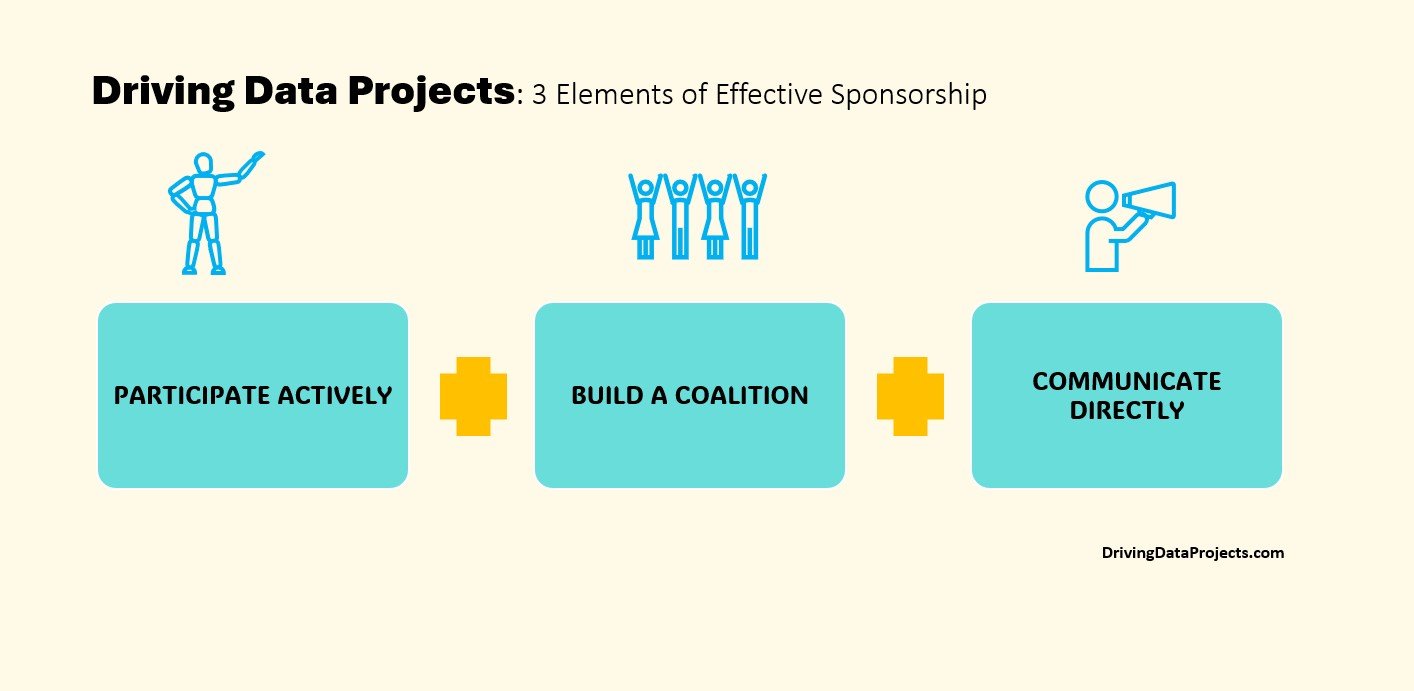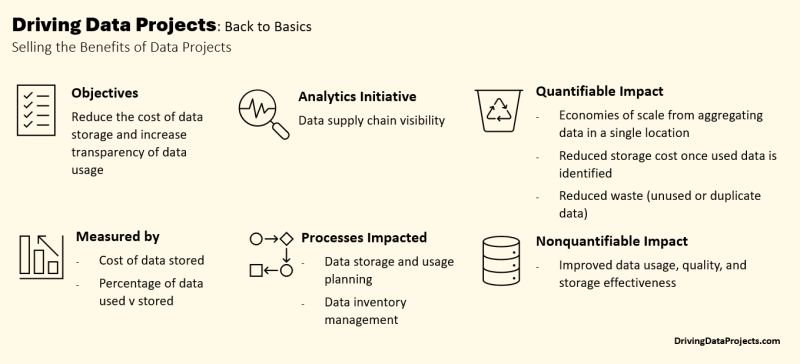
6 Myths and misconceptions about data projects
As I considered how to promote my new book on driving data projects, I wanted to include myths and misconceptions that reinforce their value. I have experienced many of these in teams I’ve worked on or with. Data projects are not a static set of routines. It's a constantly evolving, open-to-innovation process.
Only 54 percent of organizations fully understand the value of project management, according to PMI's Pulse of the Profession™ report. That might explain, in part, why project success rates are so low: Less than two-thirds meet their original business intents.

3 Elements of Effective Sponsorship
A popular misconception of senior leadership is that effective executive sponsorship is a clearly understood skill. Many assume executives receive developmental feedback about becoming effective sponsors. Sadly, there is little training on sponsorship from middle management on up.

Back to Basics: Selling the Benefits of Data Projects
Data teams should be regarded as intentional business partners because they provide the underlying technology that enables business strategy and maintain data as a corporate asset. They can help educate business partners on the upstream and downstream impacts of poor data quality and they can help cultivate more effective ambassadors for data governance across the organization.

Dos and Donts for Analysts Relying on ChatGBT
Data analytics is filled with complexity. Anyone saying otherwise is selling products. Knowing the data sources, data sets, general lineage, and behavior of the numbers are table stakes for the average data consumer. We must know where our data comes from. Much like we need to know where our food comes from and how it's processed. Is it safe to consume?